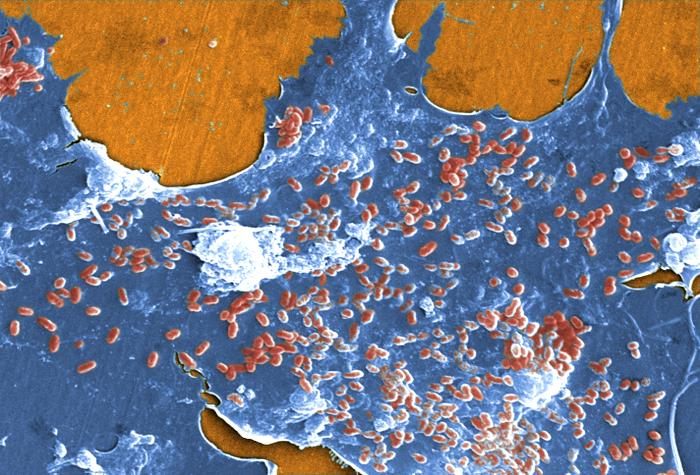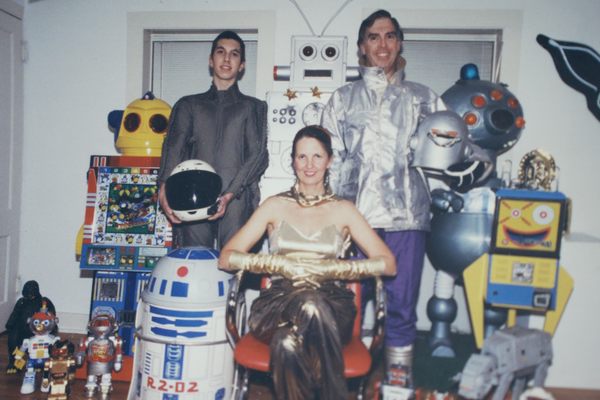Low Gravity Can Create Mutant Bacterial Slime
Attention, space travelers.

Picture this science fiction premise: In the zero-G of space, a lowly bacteria mutates and forms a dangerous blob that can kill astronauts exploring the solar system. Turns out it’s not so far-fetched. Bacteria growing in low gravity, scientists have found, can develop permanent genetic mutations, and form biofilms that can cripple life-support systems in a spacecraft.
Whether it’s a recreational orbit of the Earth or a permanent move to Mars, there are likely to be a lot more people in space in the future. But we don’t know enough about how microbial hitchhikers will behave, so researchers at NASA and the University of Houston decided to let E. coli grow in simulated microgravity for 1,000 generations. The simulated space ecosystem changed the bacteria, and even after another 30 further generations in regular gravity, the mutations the bacteria experienced remained.
“We are, in fact, seeing true genomic changes—permanent changes,” George Fox, a biologist at the University of Houston, told New Scientist. Genetic sequencing can identify which genes changed, “but we don’t know what they’re doing exactly.” The researchers do know some of the mutations are advantageous—the mutant strains formed three times as many colonies as a control strain. And some of the mutations are on genes that affect the bacteria’s ability to produce biofilms, or colonies that adhere to a surface. Biofilms aren’t inherently dangerous—dental plaque is probably the one most are familiar with—but there are places, such as sensitive life-support systems, where they’d be unwelcome.
It’s some comfort that the bacteria didn’t spontaneously develop resistance to antibiotics in microgravity. That’s not to say it’s impossible, and we should still take care to use antibiotics judiciously as we take the next steps into space.

















Follow us on Twitter to get the latest on the world's hidden wonders.
Like us on Facebook to get the latest on the world's hidden wonders.
Follow us on Twitter Like us on Facebook